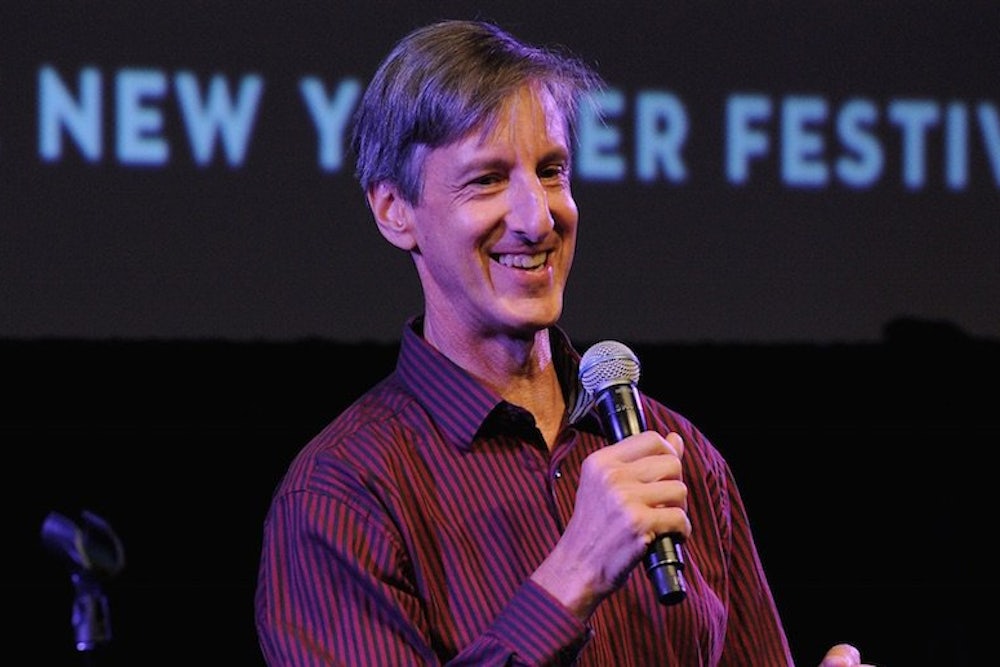Politics is hard, but political comedy can be genuinely dangerous. The politician has to gather supporters, bind them together in support of a program, and keep a coalition alive amid the inevitable disappointments and compromises of public office. The political comedian has to gather an audience, but maintaining cohesion is almost impossible because humor has to be both provocative enough to be funny while not being too abrasive to genuinely offend. Comedy is built on a complicity of shared feelings, and when that bond of fellowship is broken a comedian risks scattering the crowd.
Especially in the age of instant internet outrage, where a single misjudged joke on Twitter can draw a howling mob and lead to a firing, the political comedian is engaged in a tricky egg-shell walk, trying to be both topical but not too challenging. Comedy Central, already burned by earlier media firestorms over comments by Daniel Tosh and Stephen Colbert, is learning this lesson anew as it faces criticism for Trevor Noah, their newly hired replacement for Jon Stewart on "The Daily Show."
The announcement that Noah would replace the beloved Stewart was initially greeted with enthusiasm: As a mixed-race South African, he was a completely out-of-the-blue choice. But the hosannas greeting Noah quickly became catcalls as it turned out he had a long history of writing offensive tweets about women, Jews, and other groups:
"Oh yeah the weekend. People are gonna get drunk & think that I'm sexy!" - fat chicks everywhere.
—
trevornoah
South Africans know how to recycle like israel knows how to be peaceful.
—
trevornoah
The din of contention surrounding Noah is in part due to the solemnity of the job he is about to hold. Under Stewart, "The Daily Show" became a prestige position, enjoying a level of trust, especially among younger viewers, rarely given to media figures these days. As Kelsey McKinney argued in Vox, “A Daily Show host should be held to a higher standard than other comedians." Because the job "discusses high-profile political and social issues," she added, "Noah needs to be trusted to be able to do that in a way that is smart and fair and certainly not bigoted."
If Noah isn’t qualified for the job, who should replace Stewart? Forget about smarts and fairness. Who is capable of surviving the internet outrage factory? There is only one comedian who comes to mind, a master of the safe political joke who is unparalleled in his ability to generate a soft (or sarcastic) chuckle without ruffling a single feather: Andy Borowitz.
On both his Twitter feed, which has more than half a million followers, and on the website of The New Yorker, where he is regularly the most viewed writer, Borowitz is without peer in his ability to create soothing satire. His mechanical jokes play to his audience's preconceptions but never challenge them with a single troubling thought.
@BorowitzReport: Indiana Defines Stupidity as Religion http://nyr.kr/1E6Bkw2
—
newyorker
@BorowitzReport: Disturbed Man Tries to Get Into White House http://nyr.kr/19KOS3w (Photo by Alex Wong/Getty) pic.twitter.com/j4ngE9hJMN
—
newyorker
Borowitz offers his readers regular visits to a soothing universe where Republicans are predictably dumb, so they can be dismissed without a second thought. Not even Republicans find Borowitz offensive because his jokes have so little bite. No one has ever been fired for re-tweeting a Borowitz joke. No Borowitz joke has ever been remembered a day after appearing online. A trawl through his Twitter feed would yield no outrage, merely the risk of deathly boredom. In a dangerous age, Borowitz gives us the safe political comedy we demand.
